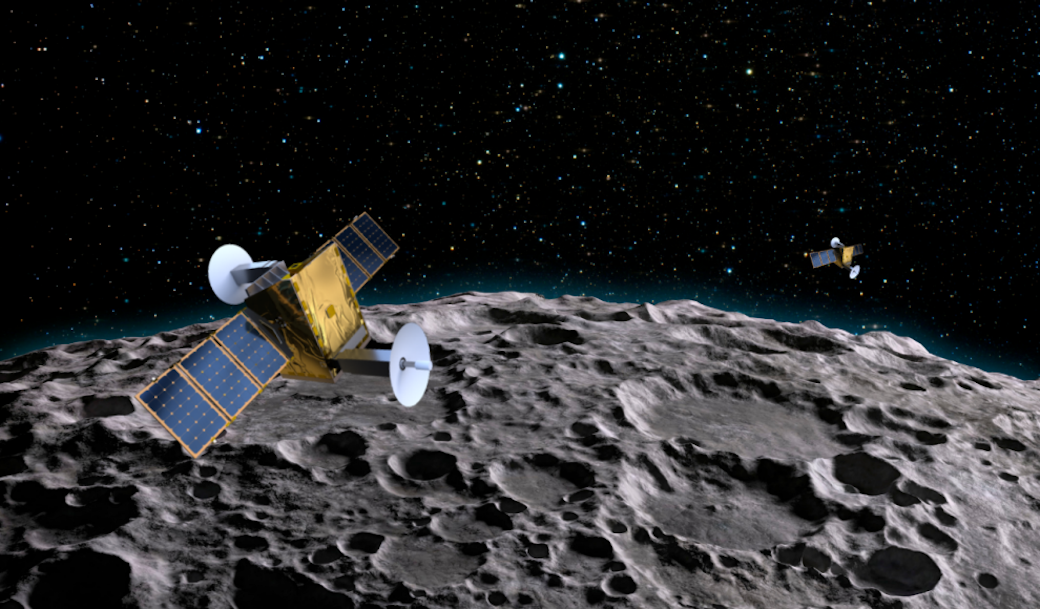
Lockheed Martin is self-funding an offshoot to provide communications, navigation and other services for government and commercial customers operating on and around the Moon.
The subsidiary, Crescent Space Services, plans to begin operations with the launch of a pair of communication and navigation satellites that will serve as the first two members of a network known as Parsec. Eventually, Parsec could include up to 230 lunar surface stations capable of communicating with each other, lunar-orbiting satellites and stations on Earth, a March 15 filing with the Federal Communications Commission shows.
“Parsec uses a constellation of small lunar satellites that will collectively work to provide continuous connection between Earth and the people and assets in lunar orbit, as well as on the surface of the Moon,” Lockheed says in a March 28 statement.
“In addition to communications, Parsec will also provide critical position, timing and navigation services for lunar missions,” it adds. “In the future, Crescent plans to offer additional services to further enable science, exploration and commerce at the Moon and in deep space.”
The satellites, which will be built by Lockheed Martin, are expected to fly in 2025. They will use Lockheed’s small-satellite Curio platform, which will debut with NASA’s Lunar Trailblazer and Janus missions. A launch partner has not yet been selected.
Lockheed, which is self-funding Parsec’s development and launch, expects to sell services to a variety of commercial, military and civilian customers. Eventually, Crescent’s offerings may expand to include transportation, data storage and other services.
